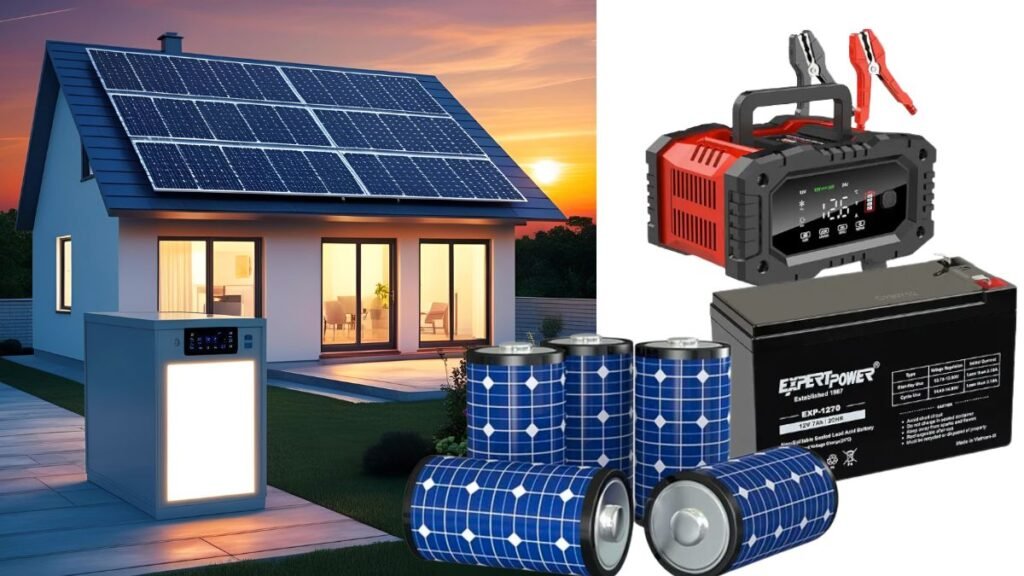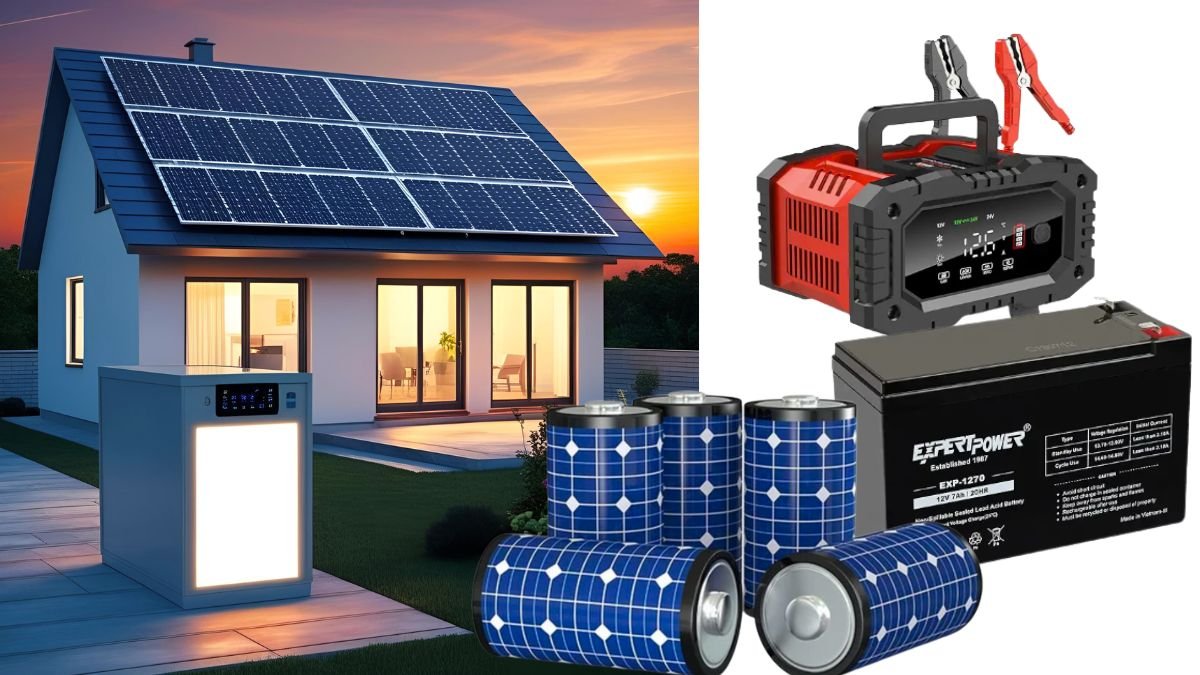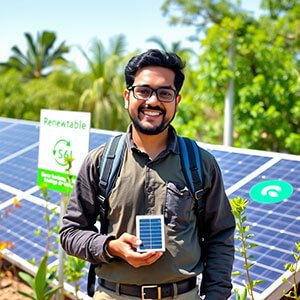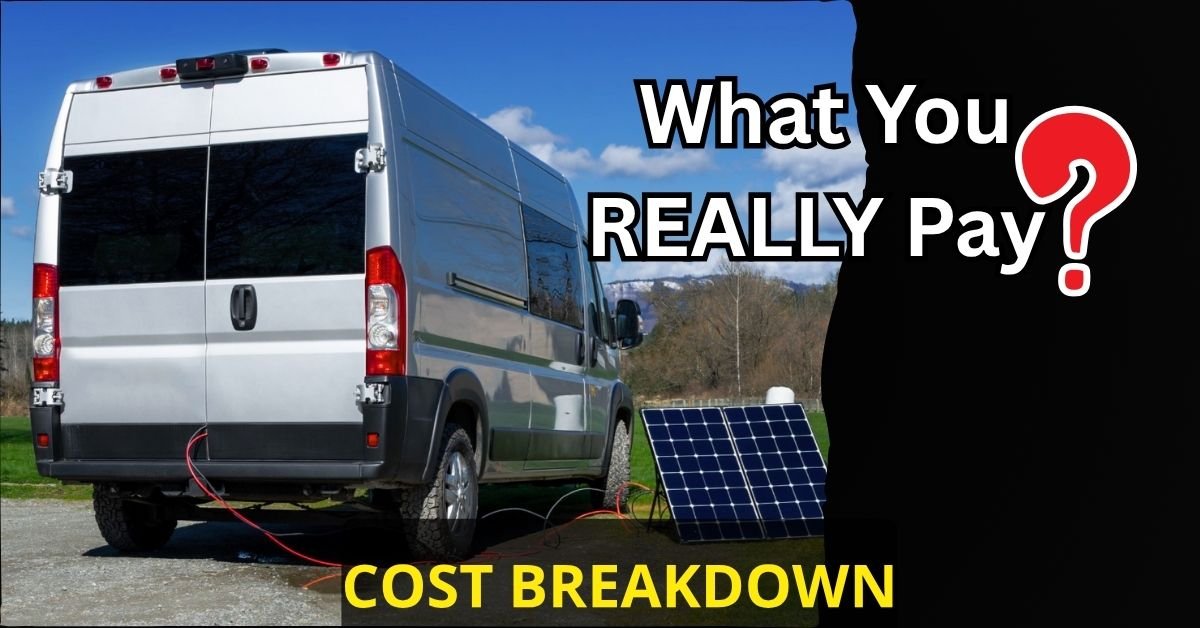How to Store Solar Energy for Nighttime Use (Batteries and Beyond Something): As the sun sets, your solar panels stop producing electricity. But your energy needs don’t disappear with the daylight. That’s where solar energy storage comes in, letting you tap into your power supply even when the sky goes dark.
In this comprehensive guide, I’ll share with you the best ways to store solar energy for nighttime use, including batteries, alternative methods, and top-rated products, to help you make an informed decision.
Why Solar Energy Storage Is Important
Solar panels produce electricity during the day, but electricity demand often peaks in the evening. Without storage, excess electricity goes back to the grid (if net metering is available) or goes unused. Solar energy storage ensures:
✔ Energy independence: Reduce reliance on the grid
✔ Lower electricity bills: Use stored power during peak rate hours
✔ Backup power: Stay energized during outages
✔ Eco-friendly living: Maximize renewable energy use
Without storage, excess energy generated during the day typically goes back into the grid, sometimes with little or no credit. Storing solar energy ensures you get the most value from your system.
How Long Can Solar Energy Be Stored?
The duration solar energy can be stored depends largely on the type of storage system used:
| STORAGE TYPE | TYPICAL STORAGE DURATION |
| Lithium-ion Battery | 1–5 days |
| Lead-acid Battery | 1–3 days |
| Flow Battery | Up to several weeks |
| Thermal Storage | Hours to days |
| Hydrogen Storage | Weeks to months |
For long-term storage, alternative methods such as thermal storage or hydrogen can be used, but batteries remain the most practical solution for the home.
How to Store Solar Energy in a Battery?
When the sun goes down or your solar production dips, your battery kicks in to supply power.

Basic setup includes:
- Solar panels
- Charge controller
- Solar battery (or battery bank)
- Inverter
Storing solar energy in batteries is the most common and effective method for residential use. Here’s how it works:
- Solar Panels Generate Electricity: During daylight hours, photovoltaic (PV) panels convert sunlight into DC electricity.
- Charge Controller Regulates Power: This device prevents overcharging and damage by managing the flow of electricity into the battery.
- Battery Stores the Energy: Excess energy is stored as chemical energy inside the battery.
- Inverter Converts DC to AC: When you need to use the stored energy, the inverter converts it into usable AC electricity for your home.
🔋 Pro Tip:
✅ Tip 01: Pair your system with a smart energy monitor to track usage and optimize storage.
✅ Tip 02: Always size your battery bank according to your nightly energy consumption for optimal performance.
Types of Solar Energy Storage Systems
There are several types of batteries suitable for storing solar energy. Each has its pros and cons in terms of cost, lifespan, efficiency, and maintenance.
Different batteries offer different advantages. Choosing the right one depends on your budget, energy usage, and system goals.
Lead-acid
- Pros: Affordable, proven technology, recyclable
- Cons: Shorter lifespan, bulky, requires ventilation
Best for: Budget-conscious homeowners or off-grid systems.
Lithium-ion
- Pros: High efficiency, long lifespan, compact
- Cons: Higher cost upfront, limited recyclability
Best for: Homeowners, smart homes, energy-conscious users.
Flow Batteries
- Pros: Long cycle life, scalable, low degradation
- Cons: Expensive, still emerging tech, larger footprint
Best for: Commercial or industrial solar storage systems, long-duration storage.
You can read: 5 Best Flexible Solar Panels for Van Life (RV) & Boats.
Battery Inverter Setup
The inverter is key to making stored energy usable. It converts DC (direct current) power stored in your battery into AC (alternating current) power for your home.
There are two types:
- String Inverter + Battery Inverter: Traditional setup (AC-coupled systems, ideal for retrofits).
- Hybrid Inverter: Combines both into one device. I mean, a single inverter for panels and batteries (DC-coupled systems, more efficient).
Tip: Choose a hybrid inverter for a seamless, efficient system.
💡 Note: Ensure your inverter is compatible with your battery brand and model for seamless integration.
Cost & Maintenance of Solar Batteries
The cost of storing solar energy varies depending on the type and size of your battery system.
Initial Costs:
- Lead-acid: $100–$300 per kWh
- Lithium-ion: $400–$750 per kWh
- Flow batteries: $700+ per kWh
Note: While the initial cost of lithium-ion batteries is higher, their long lifespan and low maintenance often result in better long-term value.
Maintenance Needs:
- Lead-acid: Regular checkups, water refills
- Lithium-ion: Low maintenance
- Flow batteries: Moderate, depends on brand
Incentives: Many states offer tax credits, rebates, and net metering programs.
Maintenance Tips:
- Keep batteries in a cool, dry place
- Monitor charge levels to avoid deep discharges
- Check connections periodically
Storing Solar Energy Without Batteries
Not ready to invest in a battery system? You still have options:
- Grid-Tied Net Metering: Send excess energy to the grid during the day, draw it back at night (where allowed).
- Thermal Storage: Convert solar energy into heat stored in water tanks or molten salt.
- Hydrogen Systems: Use solar to create hydrogen fuel—still emerging but promising.
These options can complement or substitute traditional battery storage, depending on your setup.
Top 5 Solar Battery Storage Products 2025 (With Affiliate Links)
Here are some leading solar battery systems for different needs:
- Tesla Powerwall 3: Smart, sleek, and powerful. Great for home use.
- LG Chem RESU: Compact lithium-ion battery with high efficiency.
- Sonnen Eco: German-engineered for whole-home energy.
- Simpliphi Power: Non-toxic, long-lasting lithium iron phosphate.
- Blue Ion 2.0: Premium option with impressive cycle life.
Here are some of the best solar energy storage solutions currently available on the Amazon market for family use or a small office:
- 【Perfect Replacement for Lead-acid Batteries】GREENOE 12V 100Ah LiFePO4 Lithium Battery,higher energy density,and greater…
- 【Advanced Technology】100ah lithium batteries 12v are made from 100% safe, non-toxic, non-hazardous energy and are highly…
- 【Durable! Grade A+ Battery & 15000+ Lifespan】12V 100Ah LiFePO4 Battery is recommended to charge the battery at 14.6V cha…
- Renogy AGM Batteries: Trusted Worldwide, Exceptional Safety, Extreme Performance. Support series (No limitation), parall…
- Leading AGM Batteries Renogy Deep Cycle AGM batteries have earned widespread trust with over 230,000 units sold worldwid…
- Exceptionally Safe Chemistry and Minimal Troubleshooting Compared to batteries made of other chemistries, Renogy Deep Cy…
- [Built-in Bluetooth module] You can connect the battery via Bluetooth on your phone and check the battery status at any …
- [Upgraded 100A BMS & Low Energy Consumption] Upgraded 100A BMS has anti-overcharge, over-discharge, overcurrent, and sho…
- [Lightweight & Only Takes Up 0.4ft³Space] FIUNIE 12V 100Ah lithium battery weighs only 24.25 pounds, D6.77*W 13*H 8.83 i…
- MAINTENANCE FREE: 12.99x 6.73x 8.43 inches. Weize 12v 100Ah sealed lead acid battery is manufactured with absorbent glas…
- OPERATING TEMPERATURE: Charging Temp ranges from 14℉ (-10℃) to 122℉ (50℃), discharging Temp ranges from 5℉ (-15℃) to 122…
- LONGER LIFESPAN: Compared with flooded counterparts, its lower self-discharge of 1-3% per month allows long storage befo…
Disclosure: Affiliate links may earn us a commission, but no extra cost to you, supporting more great content like this!
Featured article: Best Solar Powered Generators for Camping (Top 7 Picks).
Final Thoughts,
Power Your Nights with Solar
Now that you know how to store solar energy, you can choose the best system for your needs, whether it’s a lithium-ion battery, lead-acid setup, or alternative storage method.
🔋 Ready to go solar + storage? Get a free quote from a local installer today!























